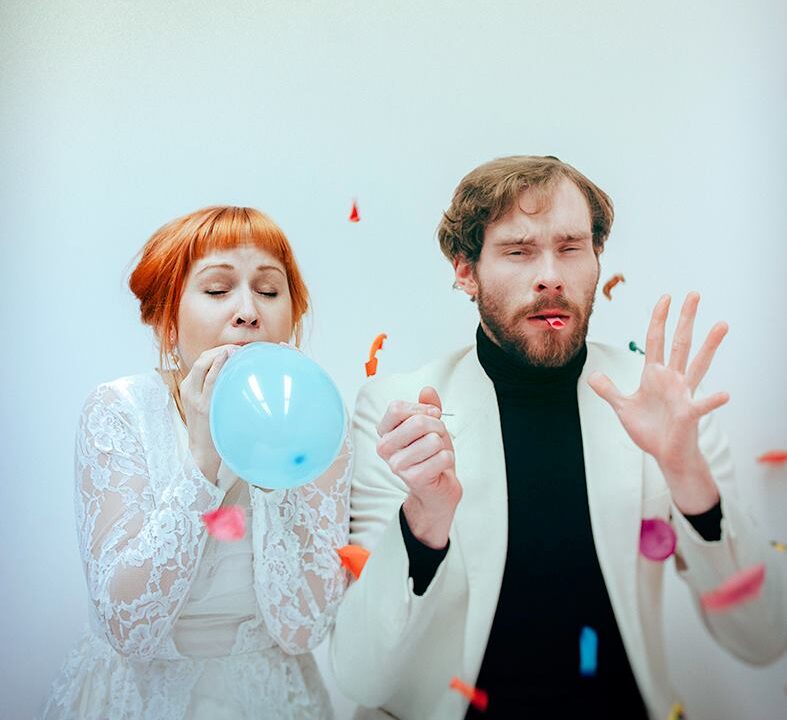
Performance “Flesh on the Bones” at Tartu New Theatre.
Director: Kertu Moppel.
Set-designer: Arthur Arula.
Playwright: Maria Lee Liivak.
Sound: Lauri Kaldoja.
Light: Priidu Adlas.
Coproduction partner: Vaba Lava.
Premiered on 21 of november 2014.
It is the end of November, there is a touch of Christmas spirit already in the air. Although we all know winter is coming, it still feels the weather is becoming cold too quickly, too unexpectedly. Even snow was like a surprise in the autumn allure, which made me want to pretend that this is not the end of another year. That time hasn’t gone so quickly by once again.
There is something special happening at Tartu New Theatre. Something stimulating. Thought-provoking. It is a new show called “Flesh On the Bones”. I take a seat in the fifth row, four spotlights shine into my eyes, stage smoke meanders up my nose and it has an especially good scent. I have always enjoyed it. There are broken balloons scattered around the stage floor.
Already from the start of the show the viewers get a chance to delve into something deeper than everyday mundane life. The gods on the stage announce that something important is coming. It is stimulating. The frenzy of parties that follows and in which the average Estonian can very well recognize him/herself, is very telling. All these parties share a feeling of restlessness. The people that take part in them seem to be searching for something or escaping something. But what is it?
The director and actors are all younger generation people and it is understandable that they are worried about taking responsibility in the face of society. At one point the actors are standing in row, humbly and reverently, and turn to the state: “Dear state…” Every actor adds his or her own wish, what the state could do for them so that they shouldn’t have to do anything themselves. Young people don’t want to take responsibility for their lives and actions.
Kertu Moppel has succeeded in something that is of key importance in a theatre performance – the ability to touch people, involve them. Inevitably the viewers have many questions. Why are we afraid of the idea of death and even of talking about it? Why are we as humans so keen on clinging to the idea of life and yet we are not really living, but escaping reality? Perhaps escaping it gives us the chance to discover new facets in us that we didn’t know existed? Maybe it is these unreal moments that help us understand ourselves and our lives better. And we see we are able to manage in circumstances that we would otherwise find impossible. It could be that the most surreal, most extraordinary moments in our lives can change our essence, worldview, make us love ourselves and the world.
There are many ways to introduce surrealism into our lives. It doesn’t have to be the most typical weekly Friday-Saturday-Sunday party; you can defeat routine in smaller ways too. You can go and discover a never-before-seen part of your home town, travel further in Estonia or abroad you have ever been, reach out to people you have never contacted, taste foods you have never tried before, try out a new workout – and see maybe you’ll like some of these things. The only thing that confines us is our own mind. When there is an idea, there will be a way to carry it out.
